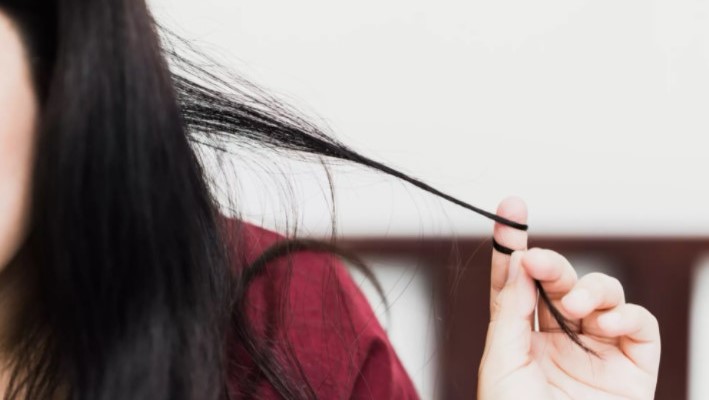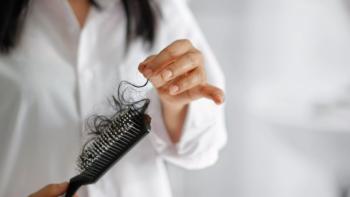Hormonal contraceptives (including pills, coils, injections, patches and vaginal rings) are designed to regulate your hormone balance, but they can sometimes have unexpected effects on your hair. Because hair growth is closely linked to your hormones, using these methods may lead to changes in hair density or volume, with some women experiencing gradual thinning or increased shedding. In this expert guide, we explore how contraceptives can affect your hair, what signs to look out for, and what you can do to protect and support healthy hair growth.
Types Of Hair Loss Related To Birth Control
It’s important to distinguish between two types of hair loss that can occur in relation to hormonal contraceptives:
Hair Thinning: Reduced Volume and Female Pattern Hair Loss
This is a gradual process caused by genetic sensitivity to androgens. Hair follicles slowly miniaturise, producing thinner, shorter hairs over time, which reduces volume and may make the scalp more visible. Certain contraceptives containing progestins with androgenic activity can exacerbate this process.
Hair Shedding (Telogen Effluvium)
This typically occurs about three months after a triggering event, such as a sudden hormonal change. Shedding is usually temporary and linked to disturbances in the body rather than a genetic predisposition. For more information on how contraceptives may affect hair shedding, visit our Hair Shedding and Hormonal Contraceptives page here.
How Contraceptives Can Affect Hair Volume
The effect of hormonal contraceptives on your hair depends on:
Hair follicle sensitivity to androgens (male hormones present in all women)
Your individual body chemistry and how your body metabolises the contraceptive
The hormonal composition of the contraceptive
It’s also worth noting here that some women notice no change at all, while others may experience gradual thinning over time.
Symptoms & Signs To Watch For
If you are using hormonal birth control, here are just some of the things worth keeping an eye out for:
Noticeable reduction in hair density
Increased visibility of the scalp
Changes in hair thickness or volume
Increased hair shedding
Unusual facial hair growth
Choosing The Right Birth Control For You
We would always suggest consulting with your doctor or gynaecologist to discuss your different options. It’s worth noting that all contraceptives work in different ways so it’s important to find one that suits your overall health goals and specific needs. Additionally, a Trichologist can help identify whether hair thinning is related to hormones and recommend appropriate treatments.
What To Do If You Notice Hair Thinning Whilst Taking Birth Control
If you experience changes in hair density, increased shedding or facial hair growth since starting or stopping a contraceptive, consult your doctor or gynaecologist before changing or stopping any birth control method. It may also be worth booking a consultation at our Philip Kingsley Clinic to discuss tailored solutions and things which may help.
What To Do If You Notice Hair Thinning Whilst Taking Birth Control
If you experience changes in hair density, increased shedding or facial hair growth since starting or stopping a contraceptive, consult your doctor or gynaecologist before changing or stopping any birth control method. It may also be worth booking a consultation at our Philip Kingsley Clinic to discuss tailored solutions and things which may help.
Expert Tips For Supporting Hair Health
Maintain a well-balanced diet with adequate protein.
Manage stress levels as this can have a big impact on the health of your hair.
Use shampoos and conditioners suited to your hair type to maintain scalp health. You can take our Hair Quiz here to help find the right products.
Seek professional guidance early if you are concerned as this may mean you are able to preserve more hair volume.
Expert Tips For Supporting Hair Health
Q: Is hair loss a common side effect of birth control, or is it rare?
A: Hair thinning is not experienced by all women and it occurs only in those genetically sensitive to androgenic hormones. This means its prevalence varies.
Q: How soon after starting birth control might I notice hair loss?
A: Hair thinning usually develops gradually, while shedding may occur approximately three months after hormonal changes.
Q: If I stop using hormonal birth control, will my hair loss stop, and will my hair grow back?
A: Stopping or changing hormonal contraceptives may allow hair growth to recover, but the timeline varies depending on individual sensitivity and the type of hair loss.
Q: Are there lifestyle changes I can make to reduce the risk of hair loss while using birth control?
A: Maintaining a healthy diet, managing stress and using haircare products appropriate for your hair type can help support follicle health and reduce thinning.
Q: Are certain types of birth control more likely to cause hair loss than others?
A: Some contraceptives contain progestins with higher androgenic activity, which can exacerbate hair thinning in sensitive individuals. Always consult a professional to discuss your options.




